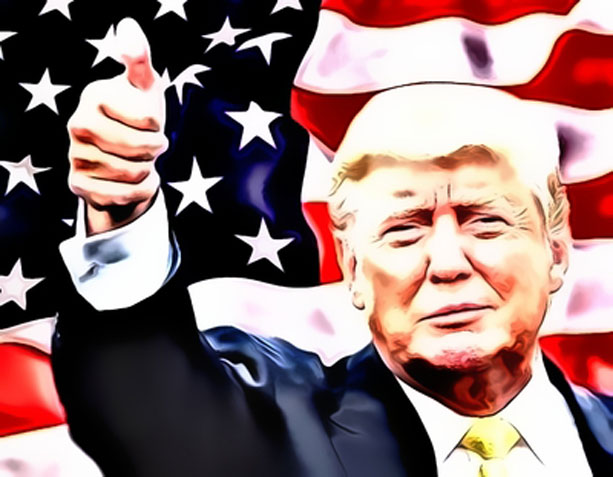
First, the Democrats gave Trump a great gift by completing the ongoing radicalization of their party under President Obama. After 2008, it was no longer a party of the working and middle classes, but a lopsided political pyramid.
On top were the cynical elites who turned up in the WikiLeaks John Podesta email trove: self-important media members,
The Democrats also, in suicidal fashion, stoked racial chauvinism, or the notion that one's tribe should transcend all other affiliations. After pandering to various minority groups,
But the Democrats learned a bitter lesson in 2016: Obama's left-wing, rich/poor ideological agendas do not appeal to most of the country. Despite a hard progressive agenda, Obama was able to win two terms by relying on racial and ethnic solidarity, earning record numbers of Latino and black votes.
The logic of such a formula could not be easily transferred to a non-minority Democratic candidate. So Clinton lost key blue states of
Worse for Democrats, by pandering to tribal solidarity, they polarized the white working classes. When physical similarity is touted as the best argument to vote for someone, it green-lights everybody to do the same -- including huge numbers of less affluent whites who voted for Trump.
Trump took advantage of these openings. By reformulating the old Republican messages to include so-called fair (rather than free) trade, by leaving
Republican elites may have been appalled that Trump blasted global trade agreements and promised to punish corporations that outsourced jobs overseas. But those who have been left out of the globalized economy flocked to that message after not warming up to
Trump's populism also appealed to a surprising number of blacks and Latinos. Although Trump was even richer than some multimillionaire Republican nominees of the recent past, he posed as a man of the people, eating fast food and speaking in a Queens accent.
For many non-whites, Trump's message was more about class than race. Inner-city dwellers share many of the same worries as the poor whites of the
These populist economic interests had been ignored by Democrats and Republicans, as coastal-corridor economies made 30-somethings in Silicon Valley and on
In other words, Trump miraculously won the
The strangest irony of all?
Establishment Republicans who hated Trump sounded a lot like establishment Democrats.
In sum, the billionaire Trump thinks he can forge a new kind of "Republican" majority, to the chagrin of elite Democrats and elite Republicans alike.
And he could be right.
Comment by clicking here.
Victor Davis Hanson, a classicist and military historian, is a senior fellow at the Hoover Institution and a recipient of the 2007 National Humanities Medal.


 Contact The Editor
Contact The Editor
 Articles By This Author
Articles By This Author